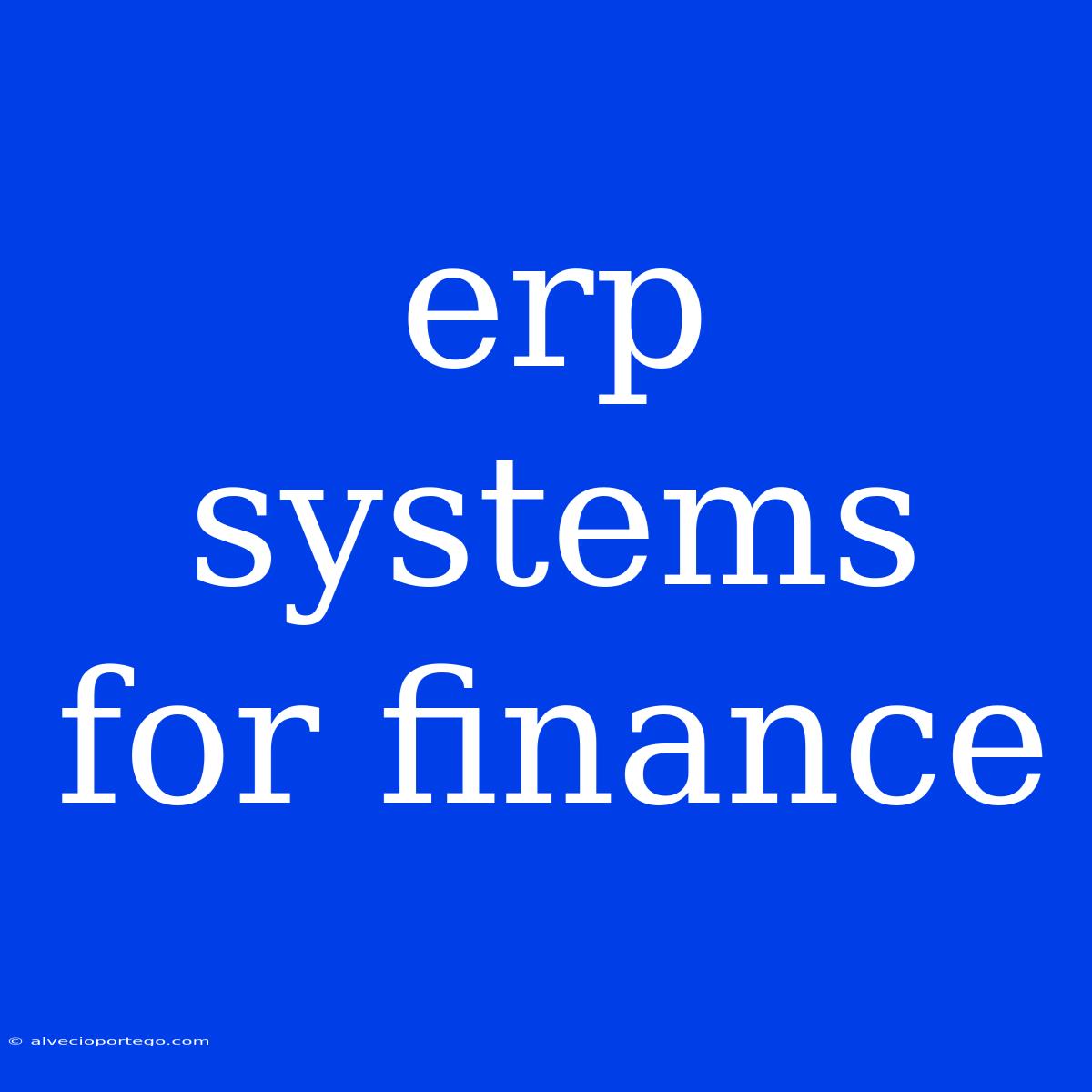ERP Systems for Finance: Streamlining Your Financial Processes
Enterprise resource planning (ERP) systems have revolutionized how businesses manage their operations, and finance is no exception. ERP systems for finance offer a comprehensive suite of tools and functionalities that automate and streamline financial processes, leading to improved efficiency, accuracy, and decision-making.
Key Benefits of ERP Systems for Finance:
- Centralized Data Management: ERP systems provide a single platform for managing all financial data, eliminating the need for disparate spreadsheets and manual data entry. This centralization ensures data consistency, reduces errors, and facilitates real-time reporting.
- Automated Processes: From accounts payable and receivable to budgeting and forecasting, ERP systems automate repetitive tasks, freeing up valuable time for finance professionals to focus on strategic initiatives.
- Improved Financial Reporting: ERP systems offer sophisticated reporting capabilities, enabling businesses to gain real-time insights into their financial performance. This includes customizable dashboards, interactive reports, and drill-down capabilities for detailed analysis.
- Enhanced Financial Control: With built-in audit trails and robust security features, ERP systems enhance financial control by minimizing the risk of fraud and errors.
- Streamlined Budgeting and Forecasting: ERP systems streamline the budgeting process by automating data collection, calculations, and reporting. They also provide powerful forecasting tools, enabling businesses to make informed decisions based on accurate financial projections.
- Better Collaboration: ERP systems facilitate seamless collaboration between finance and other departments by providing a shared platform for information access and communication.
Essential ERP System Features for Finance:
- General Ledger: A core component of any ERP system, the general ledger module provides a comprehensive overview of financial transactions, balances, and reports.
- Accounts Payable and Receivable: These modules streamline invoice processing, payment tracking, and customer management, reducing manual workload and improving cash flow.
- Financial Reporting and Analytics: ERP systems offer powerful reporting tools for generating custom financial statements, performing trend analysis, and gaining deeper insights into business performance.
- Budgeting and Forecasting: These modules facilitate budget planning, allocation, and monitoring, while also providing tools for forecasting future financial performance.
- Cash Management: ERP systems help optimize cash flow by providing tools for managing bank balances, forecasting cash needs, and automating payment processes.
Choosing the Right ERP System for Your Finance Needs:
Selecting the right ERP system for your finance department requires careful consideration of your specific requirements, business size, and budget. Look for a system with robust functionalities, ease of use, and scalability to meet your current and future needs. Additionally, consider the vendor's experience, reputation, and support services to ensure a smooth implementation and long-term success.
By leveraging the power of ERP systems, finance departments can transform their operations, enabling better financial management, improved decision-making, and ultimately, driving business growth.

